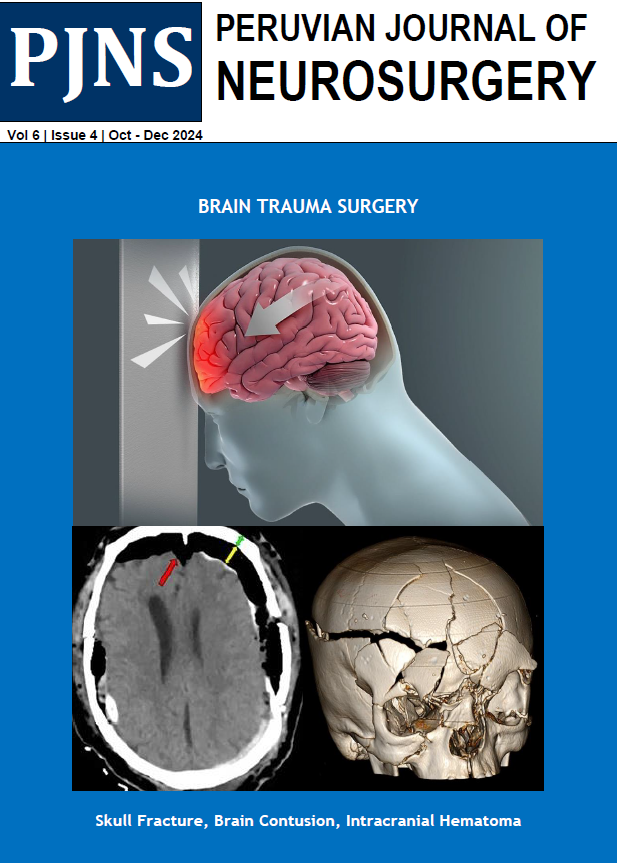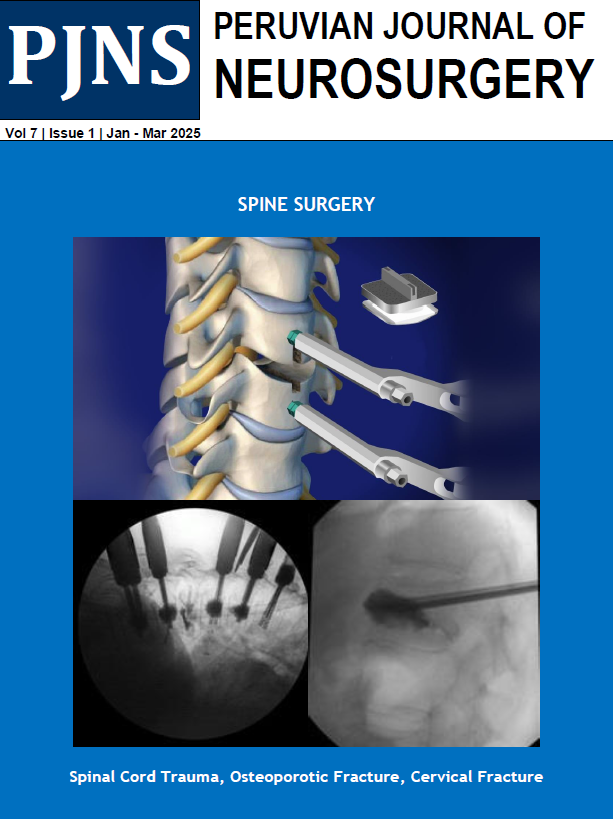GABRIELA ESPIN O., ALICIA TORRES M., JOSE RODOLFO BERNAL C., JESUS CASTRO V., ANDREA PAEZ C., BYRON SANUNGA V., CARLOS MORALES T., ENRIQUE CASTRO S.
Tipo:
Case Report
ABSTRACT (English):
Introduction: Neural tube defects (NTD) are congenital malformations that are caused by the lack of fusion of the neural tube during the embryonic period, exposing the nervous tissue to the outside. There are different types, and they can be cranial (anencephaly and encephalocele) and spinal (spina bifida). The encephalocele is a protrusion or herniation of the intracranial content, through the bony defect of the skull. In this article, we report the case of a patient diagnosed with occipital encephalocele, while reviewing the neurosurgical treatment performed in our hospital.
Clinical Case: We present the case of an 8-day-old male neonate, the son of a 36-year-old diabetic mother, with a prenatal ultrasound diagnosis of occipital encephalocele, evidenced at 16 weeks of gestational age. The patient underwent surgery, performing a plasty of the occipital encephalocele; he presented as a mediate complication infection of the surgical wound that was resolved with antibiotic treatment, later presenting a favorable evolution.
Conclusion: The extension and nature of the hernial content of the encephalocele determine its prognosis, as well as immediate treatment, which can reduce postoperative complications.
Keywords: Encephalocele, Neural Tube, Spinal Dysraphism, Nerve Tissue (Source: MeSH NLM)
ABSTRACT (Spanish):
Introduction: Los defectos del tubo neural (DTN) son malformaciones congénitas que se producen por la falta de fusión del tubo neural durante el periodo embrionario, exponiendo hacia el exterior el tejido nervioso. Existen diferentes tipos y pueden ser craneales (anencefalia y encefalocele) y espinales (espina bífida). El encefalocele es una protrusión o hernia del contenido endocraneal, a través del defecto óseo del cráneo. En este artículo, se reporta el caso de un paciente con diagnóstico de encefalocele occipital, a la vez que revisamos el tratamiento neuroquirúrgico realizado en nuestro hospital.
Caso Clínico: Se presenta el caso de un paciente neonato masculino de 8 días de vida, hijo de madre diabética de 36 años, con diagnostico ecográfico prenatal de encefalocele occipital, evidenciado a las 16 semanas de edad gestacional. El paciente fue intervenido quirúrgicamente realizándosele una plastia del encefalocele occipital; presentó como complicación mediata infección de herida quirúrgica que fue resuelta con tratamiento antibiótico presentando luego una evolución favorable.
Conclusión: La extensión y naturaleza del contenido herniario del encefalocele determina su pronóstico, así como el tratamiento inmediato puede reducir las complicaciones postoperatorias.
Palabras Clave: Encefalocele, Tubo Neural, Disrafia Espinal, Tejido Nervioso (Fuente: DeCS Bireme)


